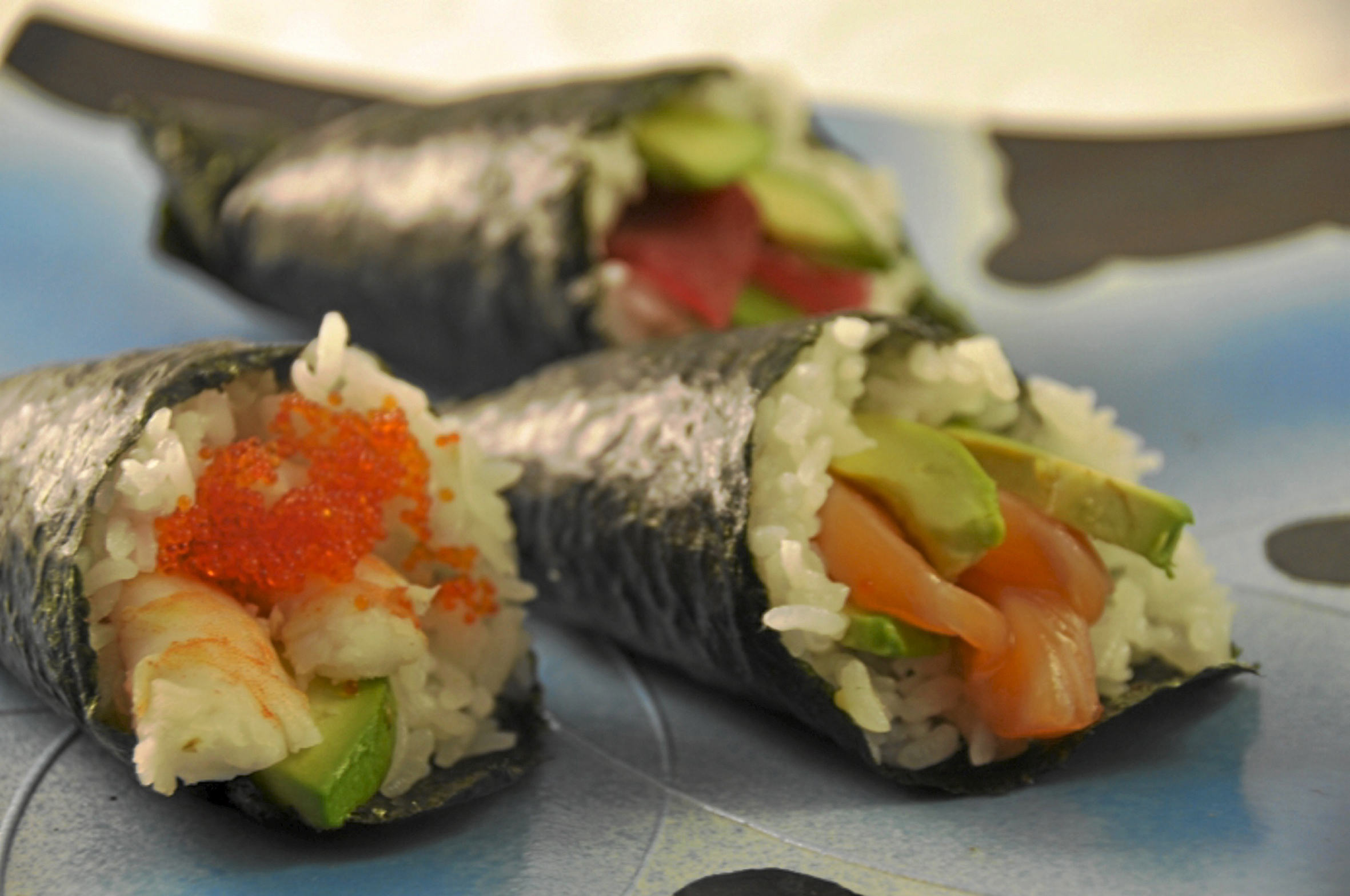The truth is that, if you look around, there isn't a very solid argument explaining why today, June 18th, is the International Sushi Day. It is said that the idea originated in 2009 from a certain Chris DeMay, the administrator of a popular Facebook page dedicated to this Japanese gastronomic delight.
Regardless, sushi deserves to have its international day and for people to talk about all the nutritional values attributed to it. Because is it really as healthy as they say? Or, as we believe, does it not make you gain weight?
In this era of 'protein worship,' Paula Valiente, a nutritionist at Clínica Palasiet (Benicàssim), starts by pointing out that "sushi is a highly protein-rich meal, as all or almost all preparations are based on fish, seafood (salmon, tuna, shrimp...). This data is very important because, as is known, proteins are an essential macronutrient for muscle repair and growth."
This delicious bite also contains one of the most precious treasures that the sea offers us to take care of ourselves. "It is rich in omega-3 fatty acids, as it is mainly made with oily fish (salmon and tuna). As is known, omega-3 is an essential fat that provides numerous health benefits, such as anti-inflammatory properties, lower triglycerides, improving brain function, among others."
Another aspect that makes it particularly interesting is the fact that it contains "raw vegetables, something that nutritionists recommend consuming every day for their contribution of fiber, vitamins, and minerals."
In addition to the omega-3 from oily fish, sushi also tends to provide us with more 'good fat.' "The use of avocado in most preparations is a source of healthy monounsaturated fats, beneficial for cardiovascular health," notes this specialist.
"A wonderful source of proteins, minerals (such as iodine, calcium, magnesium...) and vitamins (such as vitamin C, A, and B group vitamins), nori seaweed is another staple of this nutritious food."
It is also a good ally for our digestive health. "Often, sushi is seasoned with vinegar, which can help with digestion. Additionally, it is usually accompanied by foods like ginger or wasabi, which have anti-inflammatory and antimicrobial properties, contributing to good digestion."
Is it good to eat sushi when on a diet to lose weight?
So far, its virtues, but beware, because at Clínica Palasiet they recommend consuming it in moderation or occasionally and not exceeding the amounts, as it is not as healthy (or low in calories) as it may seem.
"In addition to the proteins provided by the fish, most pieces or dishes have a large amount of white rice, which is a refined carbohydrate," warns Paula Valiente.
To this, it should be added that "sugar is usually added to white rice to balance the vinegar flavor added to make it sticky and improve its preservation."
But there's more. "It may contain high levels of mercury, because the fish used are usually large species, such as tuna or swordfish." At this point, this nutritionist reminds us that "high mercury intake can cause health problems, being especially harmful to pregnant women and children. In large quantities, it can even be toxic to the nervous, immune, and digestive systems."
Valiente also emphasizes that "the high sodium content, due to the use of soy sauce, can increase blood pressure in people prone to hypertension (fortunately, low-salt soy sauces are now also available, which are recommended)."
If we opt for the 'hot' versions, it should be noted that "they usually use high-calorie sauces, special dressings, fried onions, breaded and other fried items not very recommended in a weight control diet."
Lastly, this nutritionist warns us about the threat of anisakis. "Be careful with consuming raw fish if it has not undergone proper handling, storage, preparation, and freezing processes, as it can lead to infections like anisakis. So be careful!" Her advice? "We should always ask if the fish used has been previously frozen."
Conclusion? "As part of a healthy and balanced diet, we can eat sushi once a week or every 15 days without any problem. However, if we are 'on a diet' aiming for weight loss, it is not the most advisable for the reasons explained above."
If we love eating sushi and want to lose weight, it is advisable to "choose the dishes wisely (avoiding sauces and breading), with the best options being sashimi, tuna, salmon or avocado nigiris, and tatakis. And, of course, 'green' starters such as wakame seaweed or edamame, which are excellent choices," she concludes.
